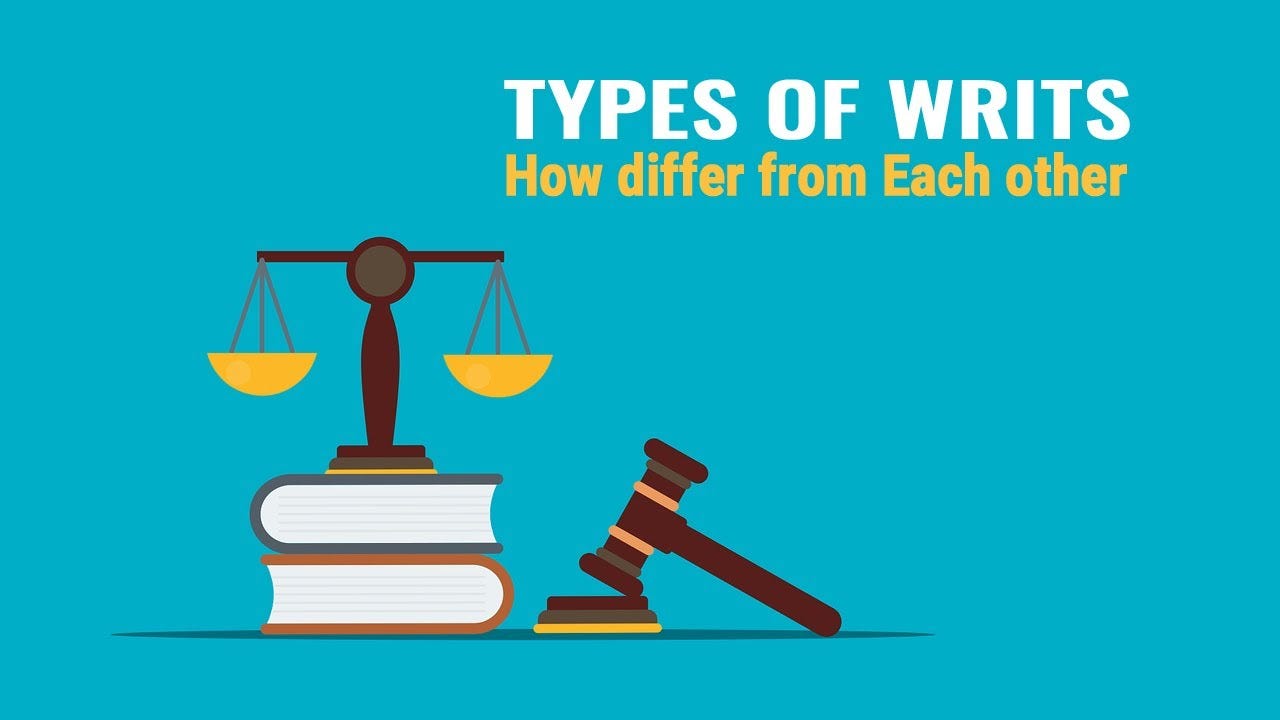#12: WRITS u/A 32!
with examples
First, there are 5 writs. You can remember them via mnemonic in this tweet
Next, what do these mean?
Let us take them up one by one as per the mnemonic we learnt in the above tweet.
1. Mandamus
- "We Command"
- A command by court to perform duties that have been refused to perform!
- This writ 'demands action' ie activity 🏃
- issues against public official/body/corporation
- can't be issued against a Pvt individual/body
eg: A victim gets their complain for FIR rejected. They can move SC/HC seeking 'action' of having an FIR registered (if case is legit).
Here, police will have to 'perform duty that have been refused to perform'
2. Prohibition
- "We prohibit"
- Prohibition of action by officers of lower court in cases which do not fall in their jurisdiction or against rule of natural justice
- 'demands inactivity'🧍
- Issued ONLY against judicial/quasi-judicial authority
eg: Say, a judicial officer with personal interest in the case might have their bias impact the decision (and principles of natural justice)
HC/SC can issue a Prohibition on their suspension/removal from that case
3. Certiorari
- "We certify"
- certification to move a case from inferior to superior court
- this is a 'curative writ' i.e. when higher court believes lower court either did not have jurisdiction in the case or committed legal error
eg: Famous Roe v/s Wade case of 1973 had been decided after grant of certiorari against a lower court order (which was recently revisited)
4. Habeus Corpus
- "To have the body of"
- directs physical presence of detained before court
- can be against pvt/public body/individual
- Issued when detained
- is not produced before magistrate in 24 hrs
- for no violation of law or unconstitutional law
- with malintent
eg:
- ADM Jabalpur v. Shivkant Shukla is a famous case of Habeus Corpus
- Sitaram Yechury filed Habeus Corpus in SC against detention of CPI (M) leader M Y Tarigami post abrogation of Article 370
5. Quo Warranto
- "by what warrant?"
- enquires legality of claim of person/public office
- prevents an officer to act in an office in which they are not entitled to
- only against public individual/body
eg: during COVID19, a large number of civil defense volunteers (CDV) were deployed in streets of Delhi. At a few places, the cases of collecting challan by them was brought to news.
Since the power to issue challan is with police, one could go to SC u/ Quo Warranto against CDV
Liked this post and you will want to support me? You can do that in two simple ways:
Share the link to this post on your WhatsApp story.
-OR- Contribute a small amount (Pay What You Want) (I send a valuable gift to everyone who makes a contribution)
To find links to my Twitter, Telegram, YouTube and Podcast Visit my Website




